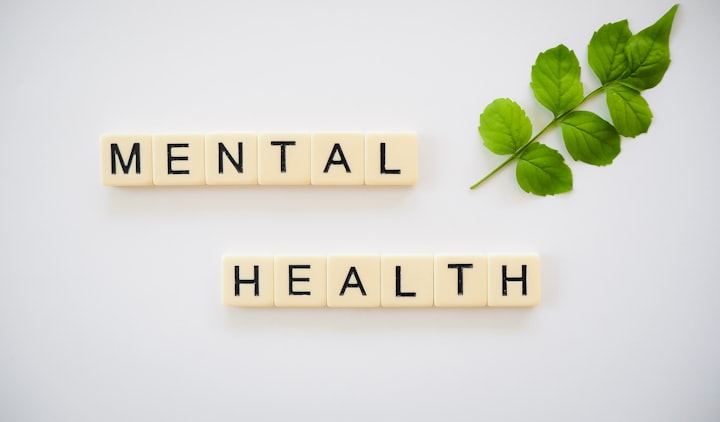The importance of mental health awareness and reducing the stigma surrounding mental illness
Importance of mental health awareness

Importance of mental health awareness
Mental health awareness is crucial because it helps to reduce the stigma surrounding mental illness and promotes early intervention and treatment. Mental health is an essential component of overall well-being, and mental illnesses can have significant impacts on a person's ability to function, work, and engage in daily activities. Unfortunately, due to the stigma surrounding mental illness, many people do not seek help or treatment when they need it, which can lead to worsened symptoms and outcomes.
Mental health awareness helps to raise public knowledge and understanding of mental health issues, including the signs and symptoms of mental illness, the importance of seeking help, and the availability of treatment options. By reducing the stigma surrounding mental illness, individuals who may be struggling with mental health issues are more likely to seek help without fear of judgment or discrimination.
Mental health awareness also promotes early intervention and treatment, which can improve outcomes for individuals with mental illness. By identifying mental health concerns early and providing access to appropriate treatment, individuals can better manage their symptoms and maintain their overall well-being.
Overall, mental health awareness is crucial in promoting the importance of mental health, reducing stigma, and encouraging early intervention and treatment. By promoting mental health awareness, we can work towards creating a society where individuals with mental illness are treated with respect, compassion, and understanding, and can access the care and support they need to lead healthy and fulfilling lives.
The Stigma Surrounding Mental Illness
The stigma surrounding mental illness refers to negative attitudes, beliefs, and behaviors towards individuals who have mental health conditions. Stigma can manifest in many ways, including discrimination, social exclusion, and prejudice. Unfortunately, mental illness stigma is widespread and can prevent individuals from seeking help or treatment when they need it, which can lead to worsened symptoms and outcomes.
There are several causes of mental illness stigma, including a lack of knowledge and understanding about mental health, fear and misunderstanding of mental illness, and cultural and societal beliefs. The media can also play a role in perpetuating stigma through sensationalized portrayals of mental illness, which can reinforce negative stereotypes and misrepresent the experiences of individuals with mental health conditions.
The negative impact of mental illness stigma is significant. It can prevent individuals from seeking help, delay diagnosis and treatment, and negatively impact their quality of life. Stigma can also lead to social exclusion and discrimination, which can further exacerbate mental health problems and increase feelings of isolation and hopelessness.
Reducing mental illness stigma is essential to improving mental health outcomes for individuals and communities. Strategies for reducing stigma include education and awareness campaigns, challenging negative stereotypes and myths, promoting positive messages about mental health, and advocating for policies that support mental health care and reduce discrimination.
Overall, the stigma surrounding mental illness is a significant challenge that must be addressed to improve mental health outcomes and promote a more inclusive and supportive society. By challenging negative attitudes and beliefs about mental health, we can work towards reducing stigma and creating a society where individuals with mental illness can access the care and support they need to lead healthy and fulfilling lives.
The Need to Reduce Stigma
Reducing stigma surrounding mental illness is crucial to improving mental health outcomes for individuals and communities. Stigma can prevent individuals from seeking help, delay diagnosis and treatment, and negatively impact their quality of life.
Reducing stigma is also important for promoting inclusion and equity, as it can lead to social exclusion and discrimination towards individuals with mental health conditions. Stigma can perpetuate negative stereotypes and misunderstandings about mental illness, which can further exacerbate mental health problems and increase feelings of isolation and hopelessness.
There are many benefits to reducing stigma surrounding mental illness. By reducing stigma, individuals with mental health conditions are more likely to seek help and treatment when they need it, which can improve outcomes and reduce the overall burden of mental illness on society. Reducing stigma can also promote inclusion and acceptance, which can improve the quality of life for individuals with mental illness and create a more supportive and understanding society.
Strategies for reducing stigma include education and awareness campaigns, challenging negative stereotypes and myths, promoting positive messages about mental health, and advocating for policies that support mental health care and reduce discrimination. It is important to involve individuals with lived experiences of mental illness in stigma reduction efforts to ensure that their voices and experiences are heard.
Overall, reducing stigma surrounding mental illness is essential to improving mental health outcomes, promoting inclusion and equity, and creating a more supportive and understanding society. By working together to challenge negative attitudes and beliefs about mental health, we can create a more inclusive and supportive society where individuals with mental illness can access the care and support they need to lead healthy and fulfilling lives.
The Role of Mental Health Awareness
Mental health awareness plays a critical role in reducing stigma and promoting early intervention and treatment for mental illness. Mental health awareness campaigns aim to increase public knowledge and understanding of mental health issues, including the signs and symptoms of mental illness, the importance of seeking help, and the availability of treatment options.
By raising awareness of mental health issues, individuals are more likely to recognize the signs and symptoms of mental illness in themselves or others, and are more likely to seek help when needed. This can improve outcomes for individuals with mental illness and reduce the overall burden of mental illness on society.
Mental health awareness can also help to reduce stigma surrounding mental illness. By increasing public understanding of mental health issues, individuals are more likely to view mental illness in a positive light and are less likely to hold negative attitudes or beliefs towards individuals with mental health conditions. This can help to create a more inclusive and understanding society, where individuals with mental illness are treated with respect and compassion.
In addition to raising awareness of mental health issues, mental health awareness campaigns can also promote positive messages about mental health and well-being. This can include promoting the importance of self-care, stress management, and maintaining healthy relationships. By promoting positive messages about mental health, individuals are more likely to prioritize their mental health and well-being, which can have long-lasting benefits for their overall health and quality of life.
Overall, mental health awareness plays a critical role in reducing stigma, promoting early intervention and treatment, and promoting positive messages about mental health and well-being. By raising awareness of mental health issues, we can work towards creating a society where mental illness is viewed in a positive light, and where individuals can access the care and support they need to lead healthy and fulfilling lives.
Conclusion
In conclusion, mental health awareness and reducing the stigma surrounding mental illness are crucial to improving mental health outcomes and promoting a more inclusive and understanding society. Stigma surrounding mental illness can prevent individuals from seeking help, delay diagnosis and treatment, and negatively impact their quality of life. By reducing stigma and increasing mental health awareness, we can improve outcomes for individuals with mental illness and promote inclusion and equity in our communities.
Strategies for reducing stigma and promoting mental health awareness include education and awareness campaigns, challenging negative stereotypes and myths, promoting positive messages about mental health, and advocating for policies that support mental health care and reduce discrimination. It is important to involve individuals with lived experiences of mental illness in stigma reduction efforts to ensure that their voices and experiences are heard.
By working together to challenge negative attitudes and beliefs about mental health, we can create a more inclusive and supportive society where individuals with mental illness can access the care and support they need to lead healthy and fulfilling lives. Mental health awareness is an essential component of this effort, and by raising awareness of mental health issues, we can help to reduce stigma, promote early intervention and treatment, and promote positive messages about mental health and well-being.
About the Creator
Rehmat Well-being
Transform your life with us! we empower you with health tips, mindfulness practices, and a holistic approach to a happier life. Nourish your mind, body, and soul and live your best life. Join the journey to radiant health and joyous living!






Comments
There are no comments for this story
Be the first to respond and start the conversation.